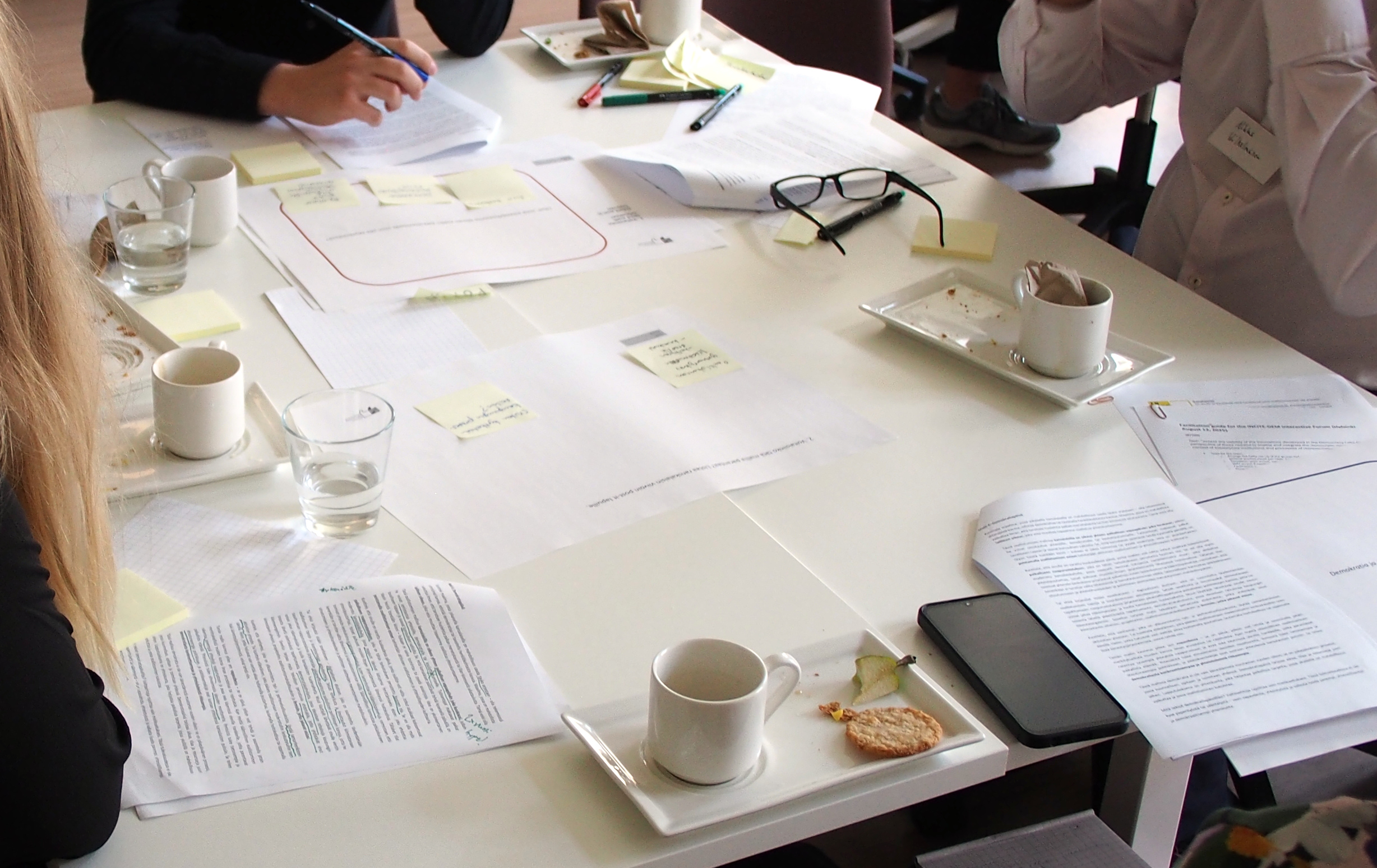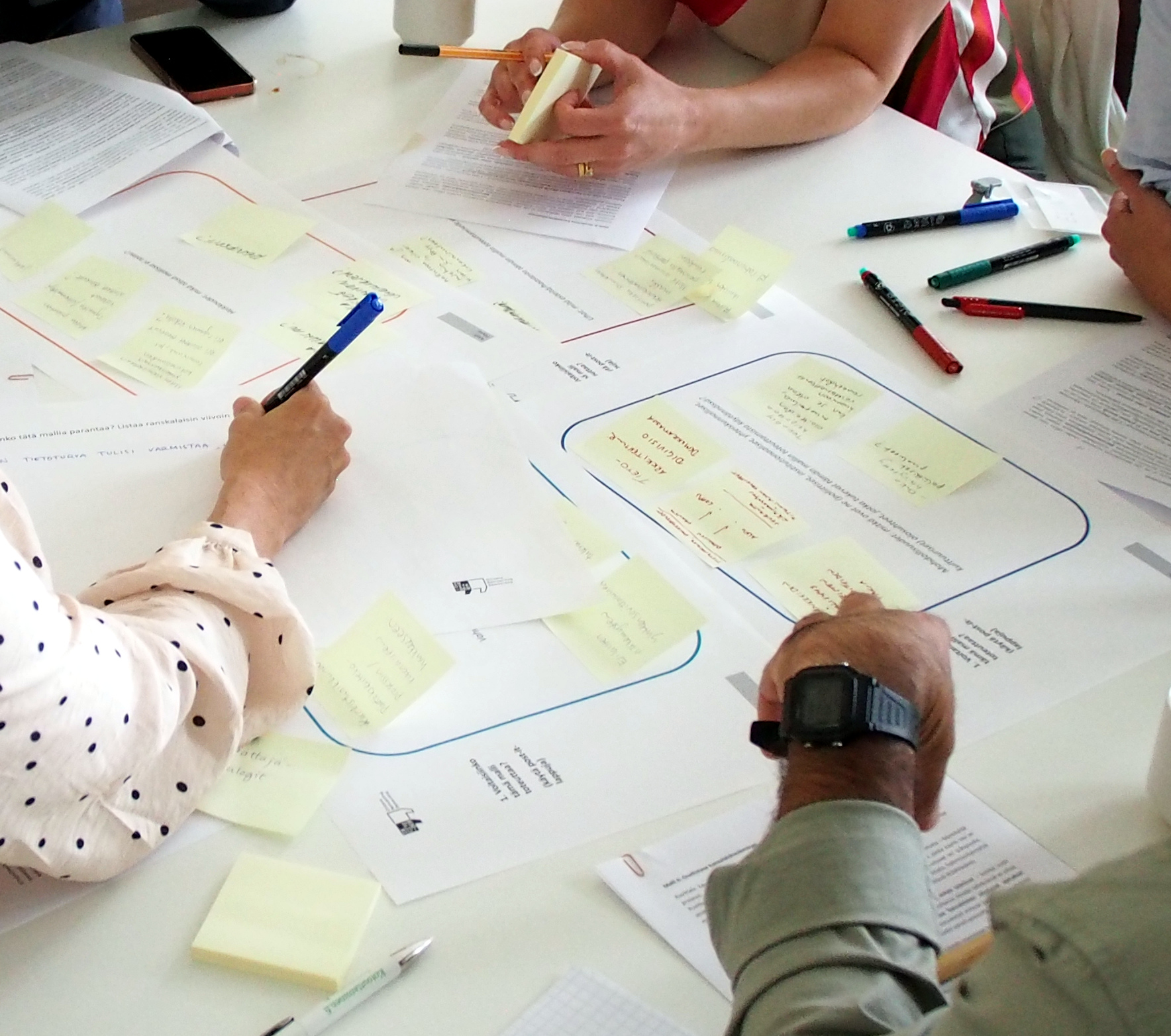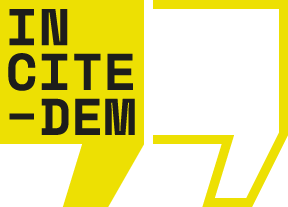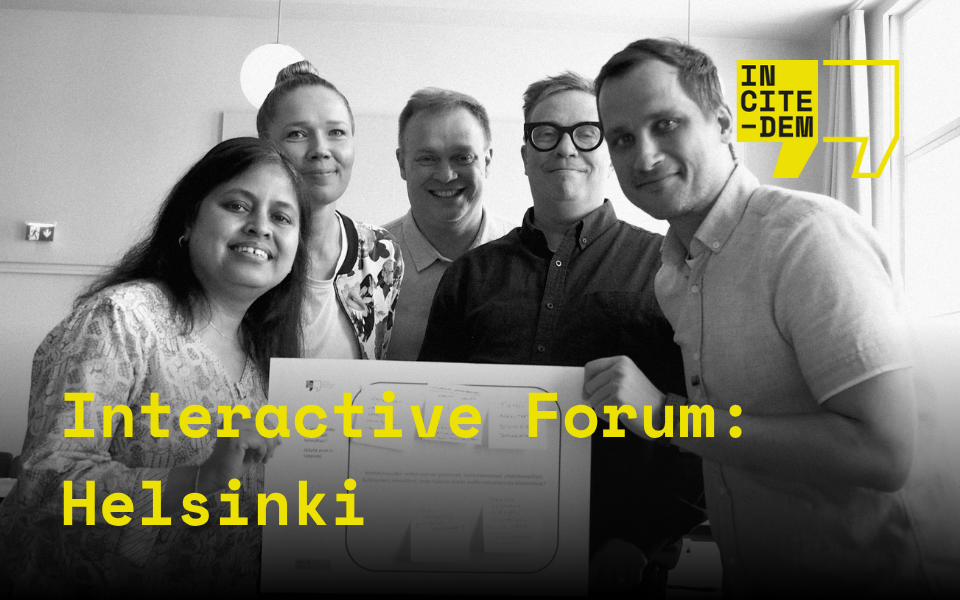The Helsinki Interactive Forum convened at the University of Helsinki on August 13, involving a wide range of representatives from cities, municipalities, national government agencies, and ministries. The Forum participants had extensive experience working with citizens in various fields, such as healthcare, digitalisation, and urban planning.
When the six participatory models were first presented, the participants’ thoughts of the innovativeness of the models were not high at first. They informed the forum facilitators that to them the models did not sound very novel — they knew that similar approaches had been tried out in one form or another with limited success.

However, once the participants reviewed the descriptions of the models that were based on citizen contributions, the atmosphere became more enthusiastic! Group discussions were lively, with insightful and critical comments. The plenary presentations were listened to attentively and further discussed among the participants.
The participants engaged in discussions beyond the most salient features of “idealistic” models that would require significant financial and administrative efforts, such as democracy allowance or a participation navigation app. This showed that the models were successful in provoking thoughts and addressing current shortcomings.
As a general remark on the models, participants noted that the feasibility of participatory models depends greatly on national and local policy practices and settings. For example, establishing neighbourhood houses can lead to processes and outcomes that differ significantly from those intended if contextual settings are not considered. In addition, permanent citizen assemblies with decision-making capabilities were considered problematic in relation to elected representative bodies, as well as from the perspective of political accountability. Furthermore, the technicalities attributed to democracy laboratories and inclusive citizen consultation using artificial intelligence were not believed to solve democratic deficits.

While each model received specific comments, cross-cutting themes were also identified. Participants expressed hope that democratic innovations would increase participation, social inclusion, community spirit, and democracy education. They appreciated that the participatory models under review were based on ideas originating from citizens. This reflected the positive atmosphere of the Forum, which emphasised that democratic innovations are both welcomed and worth pursuing.

